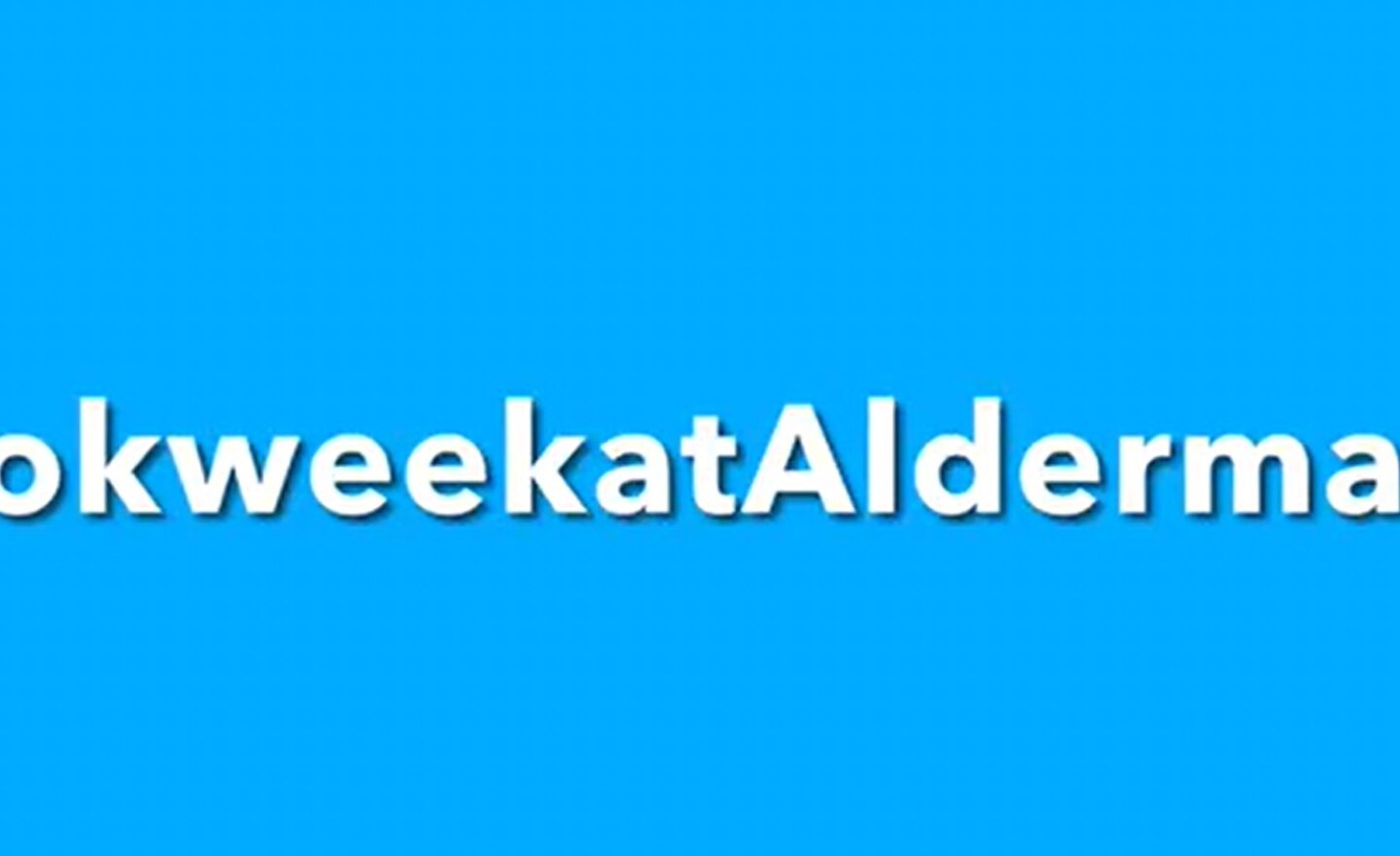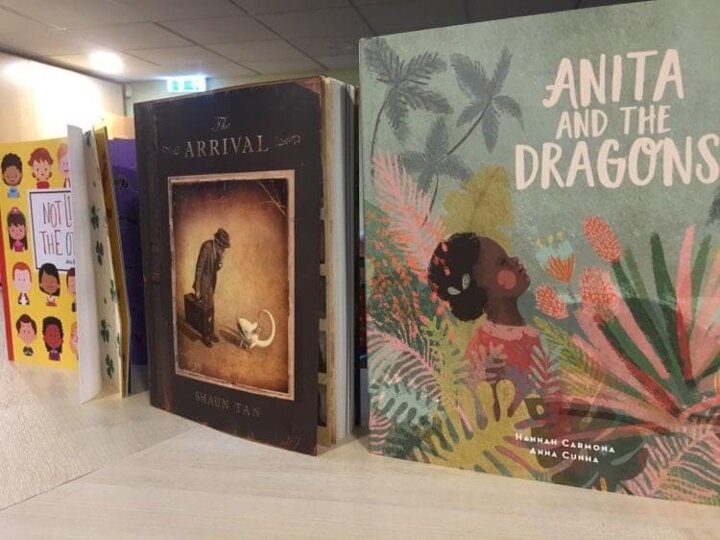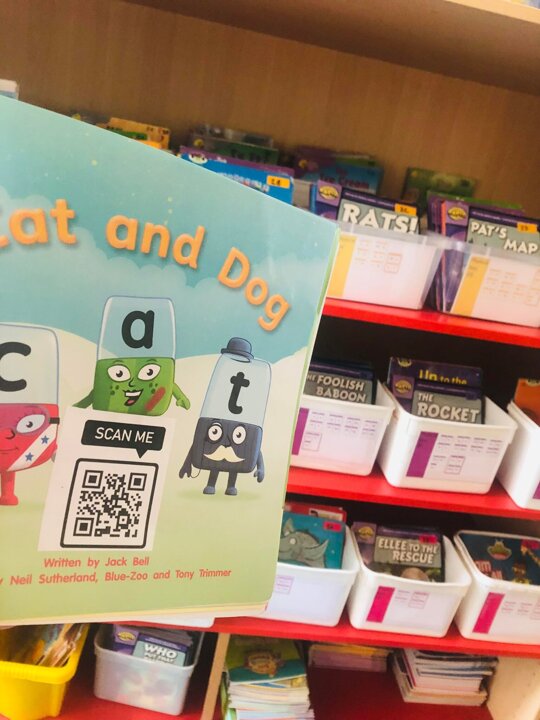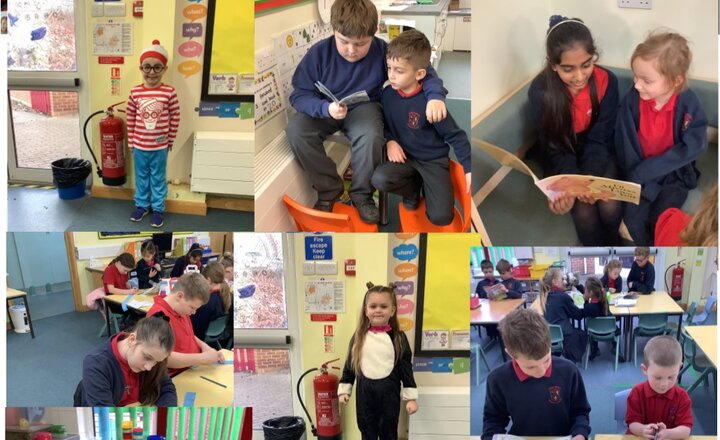Reading
Intent
'We learn to read, so that we can read to learn'
Reading is a life skill. At Aldermaston CE Primary School we want every child to leave school as a fluent reader, enabling them to be fully prepared for further academic study, and suitably equipped for the essentials of everyday life. Children will have accessed a core spine of texts which cover a wide range of genres. We want them to read for information and for pleasure, experiencing the joy of books through reading, and being read to. Over time, we want every child to develop a reading identity of their own, and to gain the passion and curiosity to want to continue their reading journey.
In Early Years and KS1 reading is introduced through our phonics scheme.
We have a strong foundation of shared reading approaches across the school.
How we support and promote reading
- Reading is at the heart of all learning in the school. Books are matched to learning topics. Each year group has a core reading spine of authors, to whom the children are introduced throughout the year, through story time and work in the classroom.
- Every child in the school will have access to guided and individual reading sessions in school, recorded in their reading record
- Children and families are supported to read at least five times every week. You can find out how your class did this week on our school blog
- Each class will be encouraged to use one of our two school libraries
- Class reading corners are a central part of every classroom, and feature a wide range of quality books, including those on the core spine of books.
- For our early readers, our phonics books are closely linked to the sounds children are learning, and hyperlinked to additional resources to support practice at home.
- We run a weekly afterschool reading café to support and encourage all sorts of reading.
- Ringfenced story time in every class, every day from 3 o’clock
- Peer supported reading
- Aldermaston celebrates book week annually, promoting books and reading across the whole school and the wider community.
Disadvantaged children and those with SEND are given full access to the curriculum. Teachers use a range of strategies to enable all children to become successful readers, including:
- Additional individual reading sessions
- Small group support in the classroom
- Targeted work in guided reading
At Aldermaston, we recognise that children need access to books from authors from a wide range of backgrounds. We are constantly reviewing and updating our resources to ensure that they fully reflect the richness and diversity of today’s Britain.
At Aldermaston CE School we have a passion to ensure that the culture of reading is embedded and the teaching of reading and spelling is as effective as possible.
Impact and Assessment
The impact of our approach is to ensure our children become confident readers and develop a life-time love of reading.
Verbal feedback - the vast majority of feedback is in conversation with the pupil, allowing misconceptions to be spotted and effectively addressed at a timely stage.
Formative Assessment
Teachers gaining feedback from other adults involved with the child – including parents in the Reading Record and adults in school during 1-1 reading sessions.
Assessments from each lesson to inform next step planning.
Summative Assessment
We have adopted the Oxford Reading Criterion Scale to assess children’s progress three times a year, and ensure that every reader is matched to books which provide challenge and allow them to make swift progress on their reading adventure. Our book boxes are designed to move children to the point where they have built stamina, developed a wide range of reading skills, been introduced to a number of classics and gained the maturity and experience to select books for themselves from our well-stocked and managed library.
Related News
Related Blog Posts

BOOK WEEK SURVEY
We'd love to know how #bookweekatAldermaston2025 went for you! We really o us suggestions and comments when reflecting on what went well this year and planning next year, so don't be shy.
There are lots of ways you can share your views:
Complete the online survey…
.jpg)
THE MASKED READERS REVEALED!
You've been listening and guessing all week and now the moment has arrived to see who was who! Copy and paste the link below....
https://youtu.be/I61mpj9-AYA
HUGE thanks to all our wonderful staff and volunteers for joining in with the Masked Reader 2025. It's been so much fun!
…
.jpg)
THE MASKED READER DAY FOUR
One day left and one more troop of readers for you to unmask! Remember you can listen to all the videos from previous days. The big reveal is tomorrow, so place your bets!
POTATO
https://youtu.be/mndvNS37ifU
COCONUT
https://youtu.be/vtVnJoxSrVI
UNDERPANTS
…





